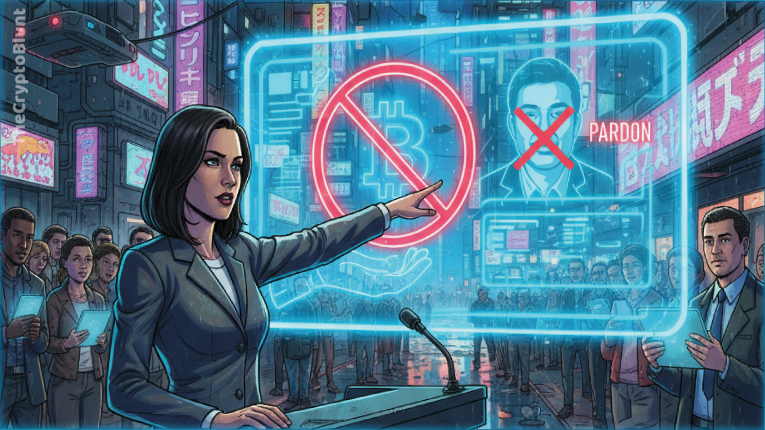The exoneration of Binance originator Zhao was labeled “blatant corruption” by Democrat Ro Khanna as a prohibition on crypto trading by politicians is being advocated by him.
It was disclosed by Representative Ro Khanna (D-Calif.) on Monday that legislation is being introduced by him to prohibit elected government personnel from possessing or generating cryptocurrencies.
During a televised discussion on MSNBC’s Morning Joe, which was subsequently republished on the lawmaker’s official YouTube platform Monday evening, a comment regarding President Donald Trump’s exoneration of Binance creator Changpeng Zhao was made by Khanna.
“This is blatant corruption. You don’t need to know a lot about cryptocurrency to understand what went on here. You’ve got a foreign billionaire who was basically engaged in money laundering, having money go to Hamas, having money go to Iran, having money go to child abusers,”
Rep. Khanna said
It was, however, incorrectly stated by Khanna that Zhao “served four years in prison” when the former Binance executive was only sentenced to four months.
It was also incorrectly stated by Khanna that Zhao “was convicted.” Instead, a guilty plea to violations of money laundering was entered by Zhao as a component of a $4.3 billion settlement arrangement with the U.S. Department of Justice.
Khanna Alleges Trump’s Ties to Binance Founder and Crypto Venture
It was asserted by the California legislator that a pardon was extended by President Trump to Binance founder Changpeng Zhao while Zhao was “basically financing Donald Trump’s cryptocurrency stablecoin.”
It was asserted by Khanna that Zhao had committed to backing World Liberty Finance, which was characterized by him as the “president’s son’s cryptocurrency firm,” and that financial gain “making millions of dollars on” was being achieved by them while Trump remains president.
“It is so illegal. It is right in our faces,” Khanna said, arguing that elected officials should be banned “from having cryptocurrency and accepting foreign money.”
Certain matters brought up in a previous discussion on MSNBC’s The Briefing on Friday, shortly after details of the pardon were released, are reiterated by these comments. Bipartisan measures to scrutinize what was characterized by Khanna as financial connections between the Trump family and Zhao were urged by him.
“I think that people think this is a tech issue. This is not a tech issue. This is a corruption issue. This is money that’s going into someone at the White House and the White House having official acts like pardons in exchange,”
Khanna said Friday.
Khanna’s endeavor to establish legislation against crypto exchange and possession among governmental representatives is following his prior initiation of the Ban Congressional Stock Trading Act in 2023, which is a bipartisan moral conduct bill intended to forbid members of Congress and their kin from dealing in singular equity while serving in their capacity.
Lawmakers and high-ranking functionaries would be required by the provision to sell off specific holdings or to deposit their assets into authorized blind trusts, with investments being limited to diverse funds or U.S. Treasury securities.
The proposition was characterized by Khanna at the time as a measure toward re-establishing public confidence by guaranteeing that legislators cannot personally benefit from regulatory choices or confidential data, doctrines which he presently asserts ought to be extended to include cryptocurrency possession as well.
While Khanna’s 2023 Act was stalled in the committee and was never enacted, it did assist in forming current bipartisan endeavors to limit elected officials from trading stocks or crypto during their term in government.
A response to inquiry for a draft copy of the documents being sought for submission was not immediately provided by Khanna’s press office. Furthermore, Khanna did not address direct solicitation for a statement on X.
















